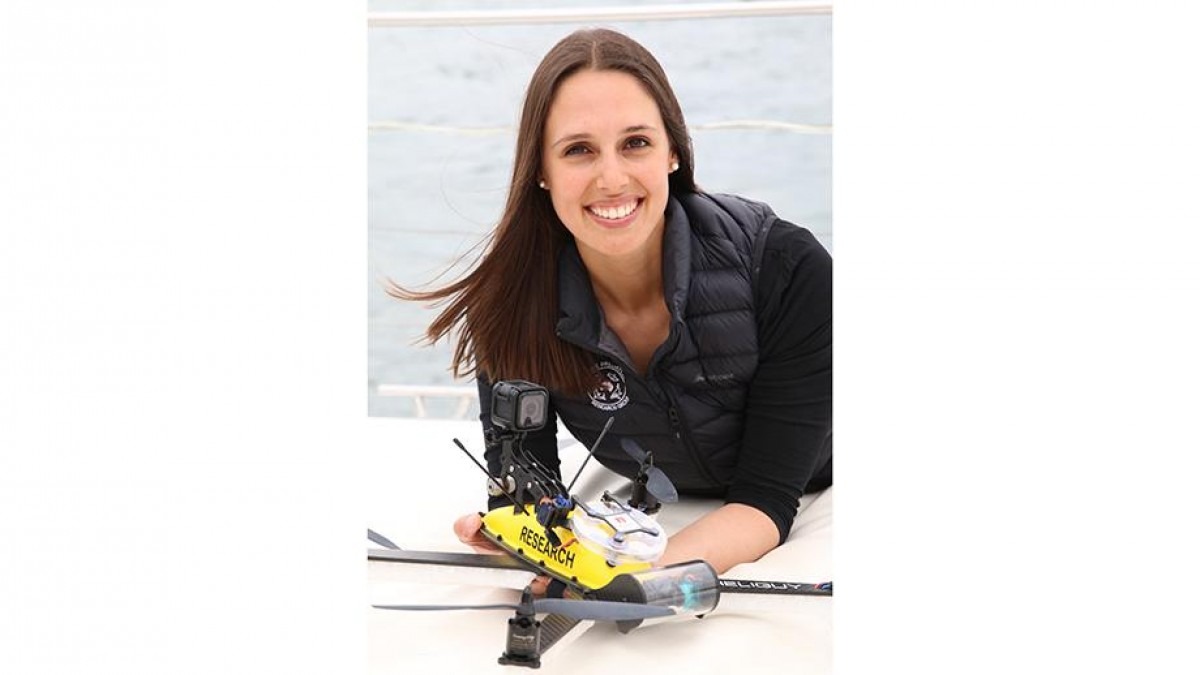From campus to whale snot
Dr Vanessa Pirotta, BSc ’10, uses drones in her research to collect whale snot for an assessment of whale health.
I recently participated in the online 10-year challenge. This is where you post a photo of yourself doing something 10 years ago next to a current photo.

I posted a photo of myself during an undergraduate biology course as part of my Bachelor of Science degree at the Australian National University. The older photo is of me conducting a squid dissection during camp at the ANU Kioloa coastal campus.
This was so much fun, especially for a science student in Canberra, having grown up on a farm and with dreams of one day being a marine biologist. Forward 10 years to 2019 and I’m still involved with animal dissections but of the larger variety – working with whales and dolphins.
I have since followed my passion to become a marine biologist and moved to Sydney where I completed a Master of Research at Macquarie University in 2014.
I worked on a project looking at ways to prevent whale entanglement in fishing gear using acoustic alarms. These are small devices placed on nets which send out a tone to acoustically alert whales to fishing gear presence.
Then I went on to a PhD looking at conceptual and practical approaches for cetacean (whale, dolphin and porpoise) conservation. During this time, I led the development of waterproof drones for collecting health information from whales remotely (drones and whale snot), collaborated with road ecologists to create frameworks to protect whales and sharks from global shipping impacts and worked with dedicated whale volunteers as part of a citizen science study focused on migrating humpback whales off Sydney.
I also discovered my passion for science communication and won a national science communication competition called Famelab. I went on to represent Australia in the international finals in the UK where I placed global runner-up.
My time at ANU definitely helped shape my career path. My undergraduate degree provided me with the starting tools for my academic career.
I remember my very first lectures on campus and that invigorating feeling of being able to focus on subjects that I thoroughly enjoyed. It was like year 11 and 12 biology class was every day!
I was able to take classes in real laboratories and was taught by quirky lecturers who made science fun. The campus was also beautiful. I’d often walk around and enjoy the trees when I needed a break.
The benefits of my time at ANU continue through today. For example, I’m often asked about my academic career path, where I refer back to my time at ANU. This is often met with a positive comment about the University.
In addition to my academic foundations, I also made some great friends along the way, many of whom I keep in contact with today. ANU holds a special place in my scientific career and I’ll continue to look back on my time there with fond memories.

